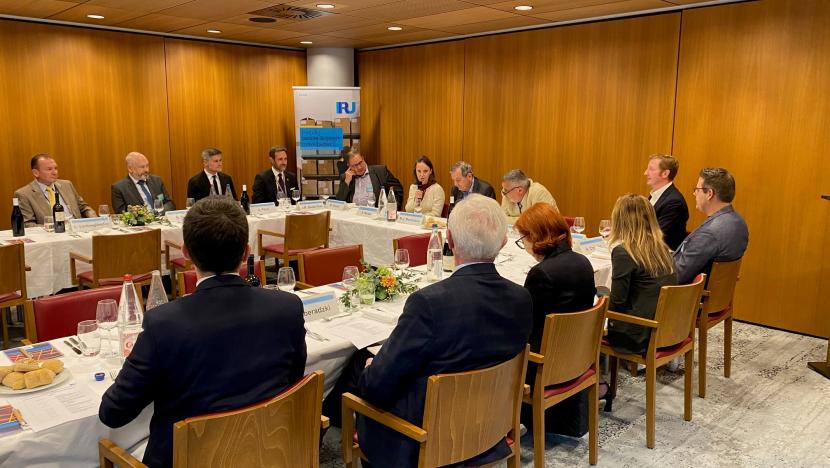EU road transport industry leaders, joined by their American counterparts, were at the European Parliament to outline why some legislators need to reassess their approach to CO₂ standards for heavy-duty vehicles.
Marian-Jean Marinescu, Member of the European Parliament (MEP), hosted a roundtable discussion on CO₂ emission standards for heavy-duty vehicles in the European Parliament, ahead of next week’s vote in the European Parliament's Committee on Environment, Public Health and Food Safety (ENVI).
MEPs and road transport companies and representatives – Ninatrans CEO Benny Smets (Belgium), Transports Chalot CEO Michel Chalot (France), Adam-Transporte CEO Christian Adam (Germany) and Blue River Manager Alexandru Păun (Romania), the American Trucking Associations’ President and CEO Chris Spear, and UPS Public Affairs Manager Chris Vanhoegaerden – exchanged views on pragmatic solutions to cut road transport’s CO₂ emissions without exposing the EU’s mobility networks and supply chains to unnecessary costs and risks.
IRU EU Advocacy Director Raluca Marian said, “We made our case, based on the versatility of heavy-duty vehicles and the current, as well as near future, state of charging infrastructure and grid availability. The targets that some MEPs want to impose on the industry are simply not based on reality. It’s wishful thinking.”
“Heavy-duty vehicles are used for everything, from construction, car transport and time-sensitive food delivery to city buses, intercity buses and coaches. Such richness in diversity requires an open-technology approach.
“Most of the seven million coaches and trucks on EU roads today have an internal combustion engine. A massive, sudden switch from the 1,500km driving range of 40-tonne vehicles to an electric vehicle autonomy between 300 and 500km under optimal weather conditions and much lower in cold weather will pose serious risks, especially given the lack of charging infrastructure and grid availability on main EU road corridors and in cities.”

